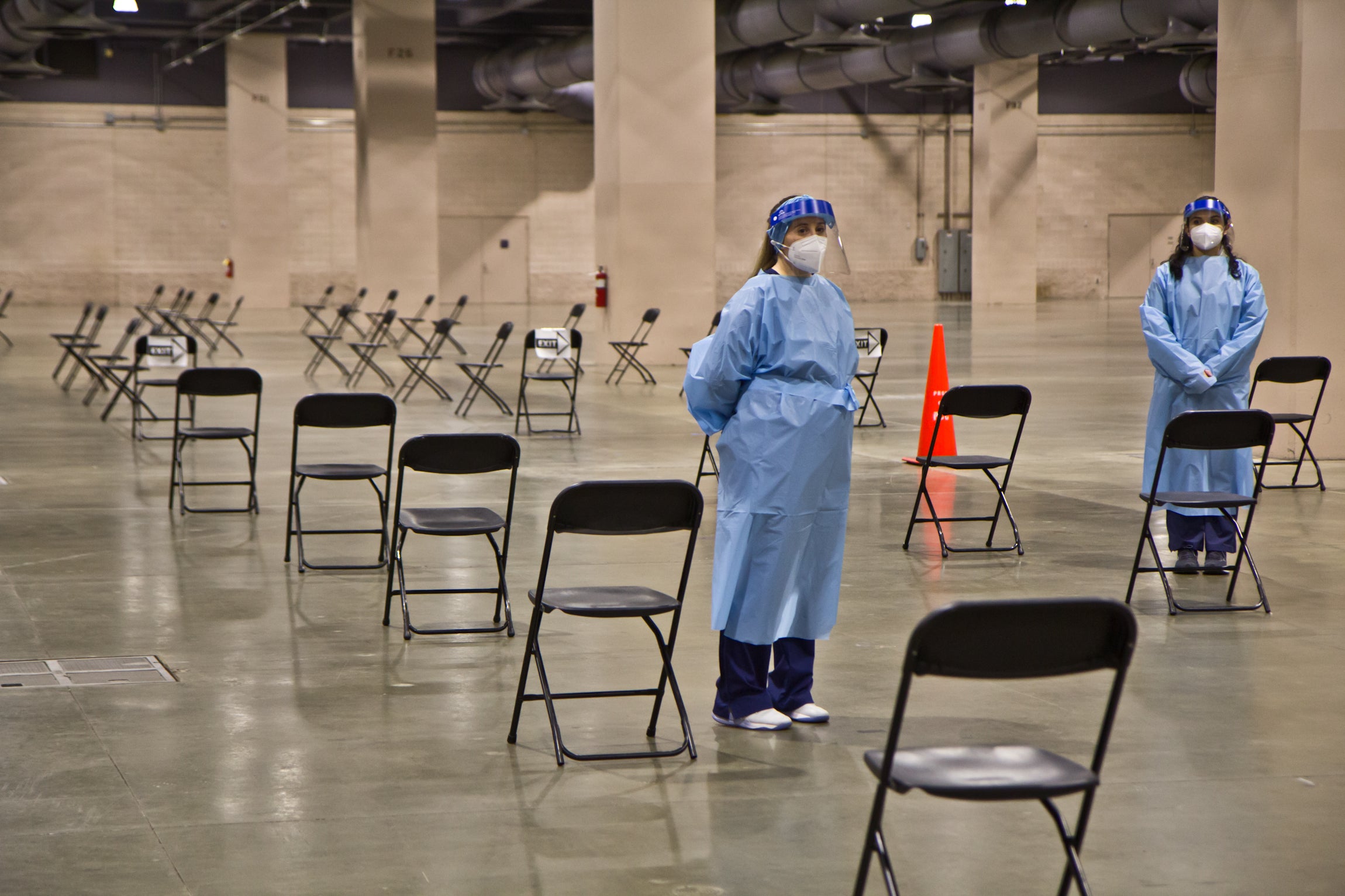Ask us about COVID-19: What questions do you have about the current peak?
Philadelphia is launching its own registration site for the COVID-19 vaccine, health officials announced on Tuesday, adding to the chorus of confusion over the vaccine registration of an existing city partner.
In early January, start-up Philly Fighting COVID launched a registration site before its mass vaccination clinic at the Pennsylvania Convention Center. The organization’s announcement stated that all vaccine preparation was “in line with the Philadelphia Department of Public Health”.
More than 60,000 people entered their information on the PFC website, according to the group, which said that all registration data was being shared with the municipality’s Health Department.
Health commissioner Dr. Thomas Farley denied that this was the case. The city does not supervise the preliminary medical database provided by the first PFC registrants, Farley said on Tuesday.
“It is not our pre-registration effort and it is not an official city registration,” Department of Health spokesman James Garrow told WHYY News last week. “We are not using, not revising, not verifying.”
The city has a relationship with Philly Fighting COVID, Farley clarified: He provides the group with thousands of vaccination doses for distribution each week. But the only data shared with the city, he said, is information about the people who were vaccinated – not about anyone who signed up.
The PFC registration page, which uses the COVIDReadi portal, makes it clear that it is not registration for consultation and does not reserve a place in the queue. The promise is that those who enter information about their profession, age and other relevant criteria will be notified as soon as their group becomes eligible.
“As we have such a close partnership with the Department of Health, we will have this information before any other agency,” said Karol Osipowicz, a professor at Drexel who serves as the group’s chief science officer, during a tour of the clinic. opened on January 8 at the Convention Center.
However, the information on eligibility did not always correspond to the city’s priority calendar, according to users who spoke with WHY. Some residents feared the effort could be a phishing scam, because they had never heard of the group, a nine-month startup.
The landing page for the PFC application bears an official seal of the city, offering a sense of legitimacy to an unknown organization. But that seal is actually the official insignia of the City Council – which has denied any approval for Philly Fighting COVID to use its brand.
“The board did not approve the use of its seal on this site,” said Joe Grace, director of communications for the chairman of the board, Darrell Clarke. “We contacted the organization’s representatives, asking them to remove the Council seal. The Council has no role in this organization. “
The new pre-registration system proposed by the city, which is expected to go into operation by the end of the week, will not interface with the PFCs, Farley said on Tuesday.
It was unclear what would happen to the tens of thousands who registered with the PFC system and whether they should register again with the city registry.
Vaccinate people before they are officially eligible
On Tuesday, Philadelphia officially opened the vaccine’s eligibility for the highest-risk categories in phase 1B, including people over 75 and those with certain chronic medical conditions.
When Philly Fighting COVID opened its pop-up vaccination clinic at the Convention Center, however, only health professionals in phase 1A were eligible. However, the link to sign up for appointments was accessible to anyone who obtained it.
Aimee Knaus, case manager of a refugee resettlement organization, told WHYY a friend who sent him the PFC link. To think that this meant that she was eligible to be vaccinated, she signed up immediately.
“It really seemed that if you were a person who somehow managed to … that link, you would be the one who would be vaccinated,” she said.
Soon after, the same friend told her that the link was not really intended for the general public, so Knaus decided to cancel his appointment. She thought of her clients – 25 families, most of whom work on the front lines and do not speak English, who would never have access to this type of advance registration.
The experience made her lose confidence in the vaccine delivery process, said Knaus.
As the rumors circulated, other people who got the link did not cancel their appointments, even though they knew they were not yet eligible.
